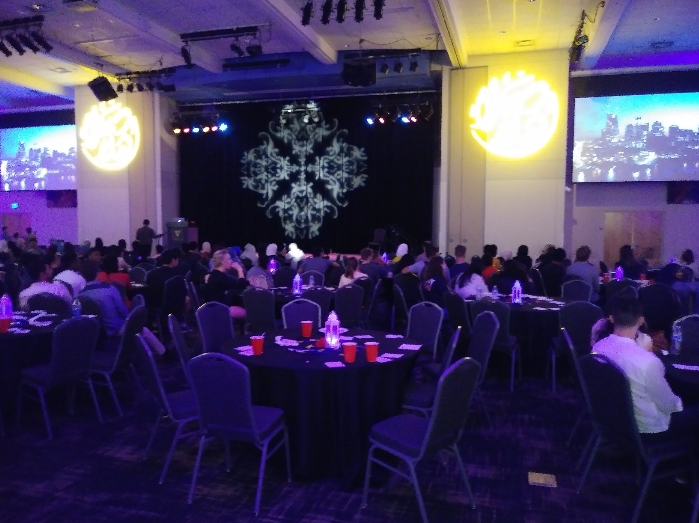This article was updated September 18 at 4:05 p.m.
Students of various faiths met on Friday, September 8th, for Vanderbilt’s Muslim Student Association’s celebration of Eid al Adha, meaning “Feast of the Sacrifice.” This holiday is meant to celebrate Abraham’s divine faith when he was ready to sacrifice his son upon God’s request. It is considered the holier of the two major Muslim holidays, the other being Eid al Fitr, or “Feast of Breaking the Fast.”
Traditionally, Eid al Adha is celebrated by sacrificing livestock, dispersing a third of the body to the poor, a third to friends and extended family and the remaining portion the nuclear family. In a similar vein of generosity, this holiday brings a large amount of donation to charity. Vanderbilt’s Eid didn’t include any sort of fundraiser component.

By the end of the event, there wasn’t a scrap left. At least an hour, if not more, of this three-hour-long event was spent standing in line for the buffet.
I killed some time while waiting for the line to die down by exploring booths set up around the perimeter of the ballroom. If someone wasn’t waiting in line for Bombay Palace, they were probably at the free henna tattoo table. Other booths included a station for writing one’s name in Arabic and a Tennessee State University booth. Vanderbilt and TSU’s Muslim communities support one another, sometimes financially, sometimes by simply being present at one another’s events.
The student performances included Sahar Fakhruddin and Wofaa Akeel, followed by a spoken word poetry performance by Aly Lakhani. There was also a Quranic recitation by Khalid Sharif, and the night closed with a tame performance by confident, charismatic hip-hop artist, Mo Sabri.
The artists’ and opening speaker from the American Muslim Advisory Council, Kasar Bigdawidi, encouraged Muslim attendees to be proud of their faith and to steel oneself against persecution, judgement and prejudice.
Muslim Student Association President, Hamza Patel, said that hosting this event isn’t just about the merriment of a holiday, but is also a big opportunity to show people outside of the Muslim community that practitioners of his faith are more than just their religion. They are performers, activists and parents, among many other life roles and passions.


